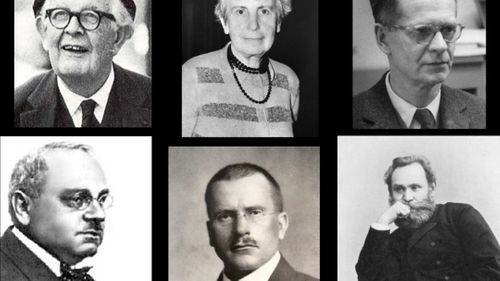10 Famous Psychologists and Their Landmark Books
Sep 29, 2023 · 2 mins read
0
Share

Alfred Adler - Understanding Human Nature (1927)
What we think we lack determines what we will become in life
Save
Share
Anna Freud - The Ego and the Mechanisms of Defense (1936)
We do just about anything to avoid pain and preserve a sense of self, and this compulsion often results in the creation of psychological defenses
Save
Share
Sigmund Freud - The Interpretation of Dreams (1902)
Dreams reveal the desires of the unconscious mind, and also its great intelligence
Save
Share
William James - Principles of Psychology (1890) Psychology is the science of mental life, which means the science of the self
Save
Share
Carl Jung - The Archetypes and the Collective Unconscious (1953)
Our minds are connected to a deeper layer of consciousness which speaks in terms of imagery and myth
Save
Share
Abraham Maslow - Motivation and Personality (1954)
Full mental health is not the absence of neurosis but the fulfilment of our potential
Save
Share
Stanley Milgram - Obedience To Authority (1974)
Awareness of the natural tendency to obey authority may lessen the chance of blindly following orders that go against your conscience
Save
Share
I.P. Pavlov - Conditioned Reflexes (1927)
In the way that our minds are conditioned, we are less autonomous than we think
Save
Share
Jean Piaget - The Language and Thought of the Child (1966)
Children are not simply “little adults”, thinking less efficiently than us; they think differently
Save
Share
BF Skinner - Beyond Freedom & Dignity (1953)
Like all animals, humans are shaped by their environment. But we are different in that we have the ability to create new environments
Save
Share
0